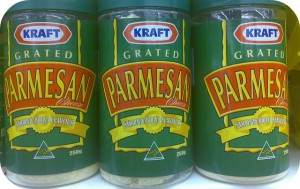 For many modern eaters, food doesn’t necessarily have to be healthy as long as it’s authentic. After all, people don’t eat at popular burger joints like Shake Shack because their food is more nutritious than McDonald’s. Today’s fast casual chains draw in customers by focusing on how their ingredients are genuine and sustainable rather than simply healthy. As Chipotle’s recent troubles show, though, maintaining high quality standards in the vast food industry is a lot more difficult than advertised. Not only do potentially unsafe ingredients abound, but also unscrupulous suppliers who praise their products’ purity while actually offering something quite different.
For many modern eaters, food doesn’t necessarily have to be healthy as long as it’s authentic. After all, people don’t eat at popular burger joints like Shake Shack because their food is more nutritious than McDonald’s. Today’s fast casual chains draw in customers by focusing on how their ingredients are genuine and sustainable rather than simply healthy. As Chipotle’s recent troubles show, though, maintaining high quality standards in the vast food industry is a lot more difficult than advertised. Not only do potentially unsafe ingredients abound, but also unscrupulous suppliers who praise their products’ purity while actually offering something quite different.
Such was the case of Castle Cheese, a Pennsylvania company that once enjoyed annual sales of $19 million. The cows came home to Castle in 2012 when FDA investigators paid a surprise visit to their factory. After collecting some samples and running tests, the feds discovered that the company’s “100% Grated Parmesan Cheese” contained no parmesan at all. Comprised mainly of cheap cheddar, Castle’s imposter parmesan also contained too much cellulose, an agent derived from wood pulp that’s used to prevent clumping. The company eventually filed for bankruptcy and its former president is expected to plead guilty to criminal charges later this month.
Still, companies like Castle are far from outliers. According to Neal Schuman, CEO of the biggest U.S. seller of hard Italian cheeses, as much as 20 percent of domestic production is mislabeled. “The tipping point was grated cheese, where less than 40 percent of the product was actually a cheese product,” said Schuman. “Consumers are innocent, and they’re not getting what they bargained for. And that’s just wrong.”
Hard cheeses like parmesan end up getting cut with fillers due to their relatively high production costs. Parmesan loses a significant amount of moisture as it ages for months, leading to a yield of approximately 8 pounds of cheese for every 100 pounds of milk used. Other cheeses typically yield 10 pounds of product, making them appealing fillers if parmesan gets too pricey. Although the FDA has not yet formulated a plan to take on these corner-cutters, the high profile of this story combined with America’s love for cheese may soon spur them into action.
Questions:
- In Germany, brewers must obey a strict purity law that outlines exactly what ingredients can go into beer. Should the FDA put a similar rule into place for cheese? How would this affect the regulation of other foods?
- Will controversies like this one make consumers think twice about food that is marketed as “real” or “authentic?”
Source: Lydia Mulvany, “The Parmesan Cheese You Sprinkle on Your Penne Could Be Wood,” Bloomberg, February 16, 2016. Photo by Luca Conti.
